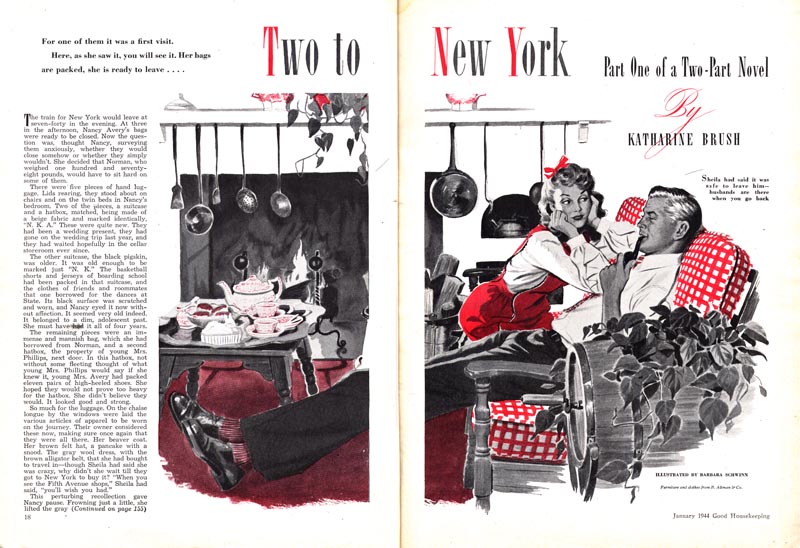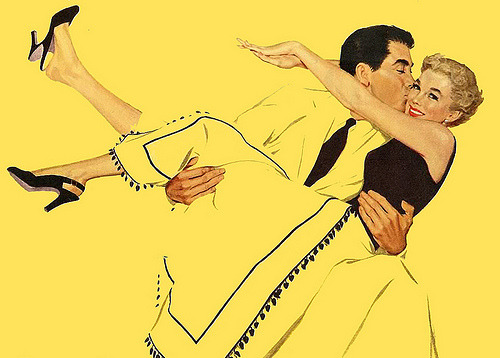A British Dandy Biography: Terence Rattigan

Rattigan's determination to write a more serious play produced After the Dance 1939, a fine satirical social drama about the 'Bright Young Things' and their failure to do anything to prevent the war. Unfortunately the war itself scuppered the play's chances of a long run. Rattigan would alternate between comedies and dramas, and after the war, a string of dramas made his name as one of the major playwrights of the day: The Winslow Boy (1946), The Browning Version (1948), The Deep Blue Sea (1952), and Separate Tables (1954).
Rattigan believed in craftsmanship, structure, and his plays find their emotions in the depths. This all became very old-fashioned after 1956 when John Osborne's Look Back in Anger announced a new kind of emotional explicitness and intensity. Rattigan, like many other writers of his generation, suffered an almost immediate eclipse, falling into critical disfavour. Rattigan was not a thick-skinned writer and the decline in his reputation hit at his confidence. He retaliated in churlish interviews, and ill-advised comments in the plays, and in doing so he turned himself into the caricature that was being made of him: a conservative, old-fashioned, play-carpenter with no sympathy or understanding of the modern world. In fact, he was none of these things, and some of the better work of the last twenty years of his life, like Ross, Man and Boy, In Praise of Love, and Cause Celebre stand up with the finest of his other work.
He was diagnosed as having leukemia in 1962 and recovered 2 years later, but again fell ill in 1968. He disliked the Swinging Britain of the 1960s and moved abroad, living for the rest of the sixties in Bermuda, and living off lucrative, but forgettable screenplays (for a time he was the highest-paid screenwriter in the world). He was knighted in the early seventies and moved back to Britain where he experienced a minor revival in his reputation before his death in 1977.
Fifteen years after his death, largely through a magnificent revival of The Deep Blue Sea, at the Almeida Theatre, London, directed by Karel Reisz, Rattigan came to be seen as one of the century's finest playwrights, an expert choreographer of staged emotion, an anatomist of human emotional pain.
Several of his later plays were adapted for film and/or television. The best-known are:
The Winslow Boy (1946)
The Browning Version (1948)
Harlequinade (1948)
The Deep Blue Sea (1952)
Separate Tables (1954)
Ross (1960)
Rattigan believed in craftsmanship, structure, and his plays find their emotions in the depths. This all became very old-fashioned after 1956 when John Osborne's Look Back in Anger announced a new kind of emotional explicitness and intensity. Rattigan, like many other writers of his generation, suffered an almost immediate eclipse, falling into critical disfavour. Rattigan was not a thick-skinned writer and the decline in his reputation hit at his confidence. He retaliated in churlish interviews, and ill-advised comments in the plays, and in doing so he turned himself into the caricature that was being made of him: a conservative, old-fashioned, play-carpenter with no sympathy or understanding of the modern world. In fact, he was none of these things, and some of the better work of the last twenty years of his life, like Ross, Man and Boy, In Praise of Love, and Cause Celebre stand up with the finest of his other work.
He was diagnosed as having leukemia in 1962 and recovered 2 years later, but again fell ill in 1968. He disliked the Swinging Britain of the 1960s and moved abroad, living for the rest of the sixties in Bermuda, and living off lucrative, but forgettable screenplays (for a time he was the highest-paid screenwriter in the world). He was knighted in the early seventies and moved back to Britain where he experienced a minor revival in his reputation before his death in 1977.
Fifteen years after his death, largely through a magnificent revival of The Deep Blue Sea, at the Almeida Theatre, London, directed by Karel Reisz, Rattigan came to be seen as one of the century's finest playwrights, an expert choreographer of staged emotion, an anatomist of human emotional pain.
Several of his later plays were adapted for film and/or television. The best-known are:
The Winslow Boy (1946)
The Browning Version (1948)
Harlequinade (1948)
The Deep Blue Sea (1952)
Separate Tables (1954)
Ross (1960)






{Terence Rattigan Official Site.}





